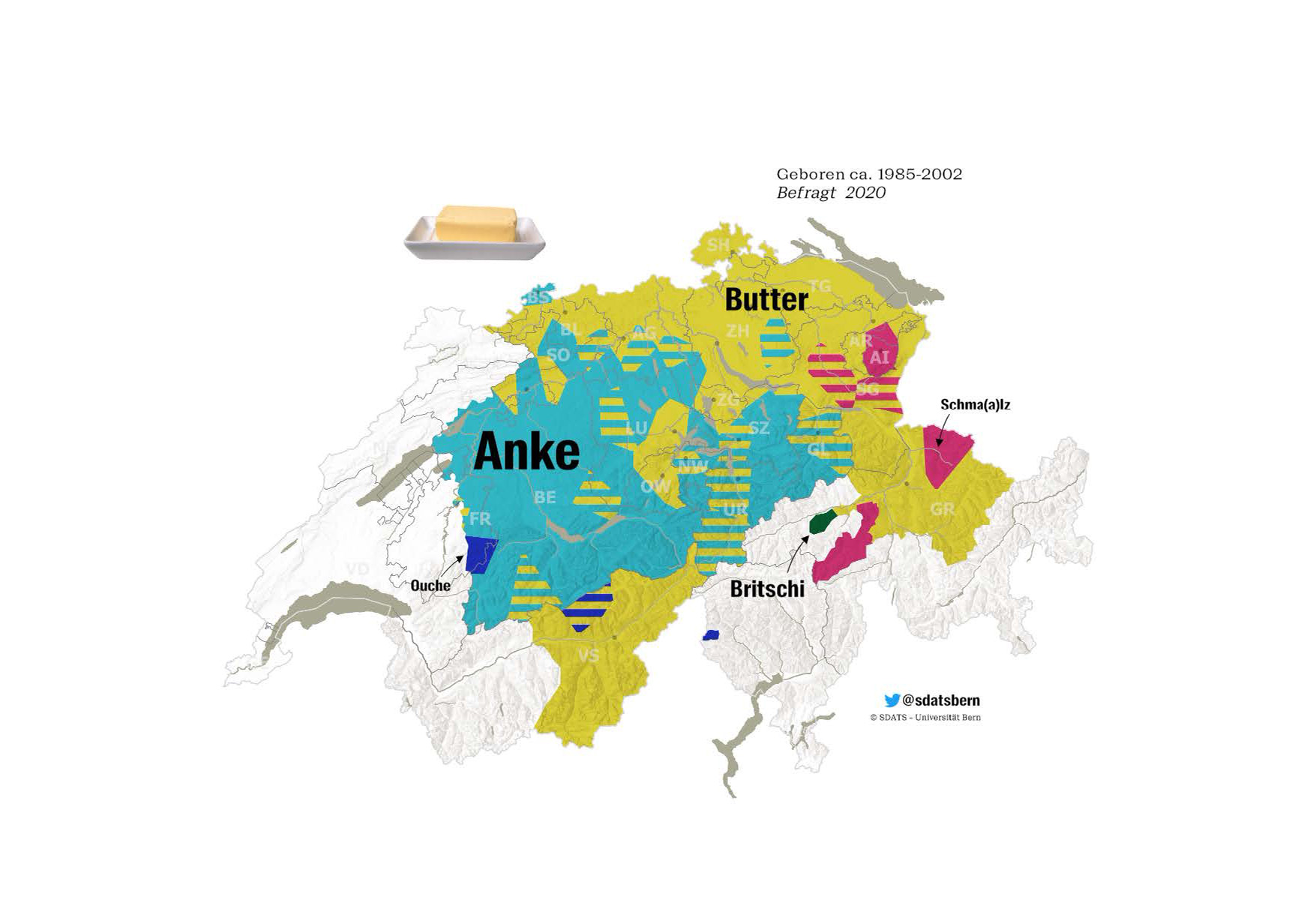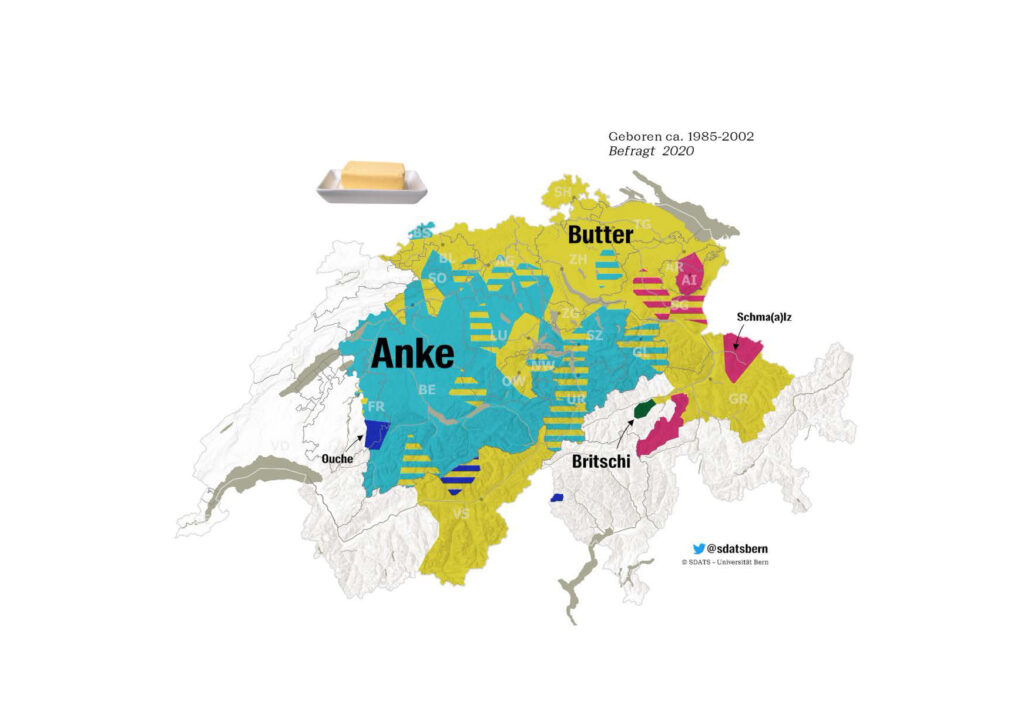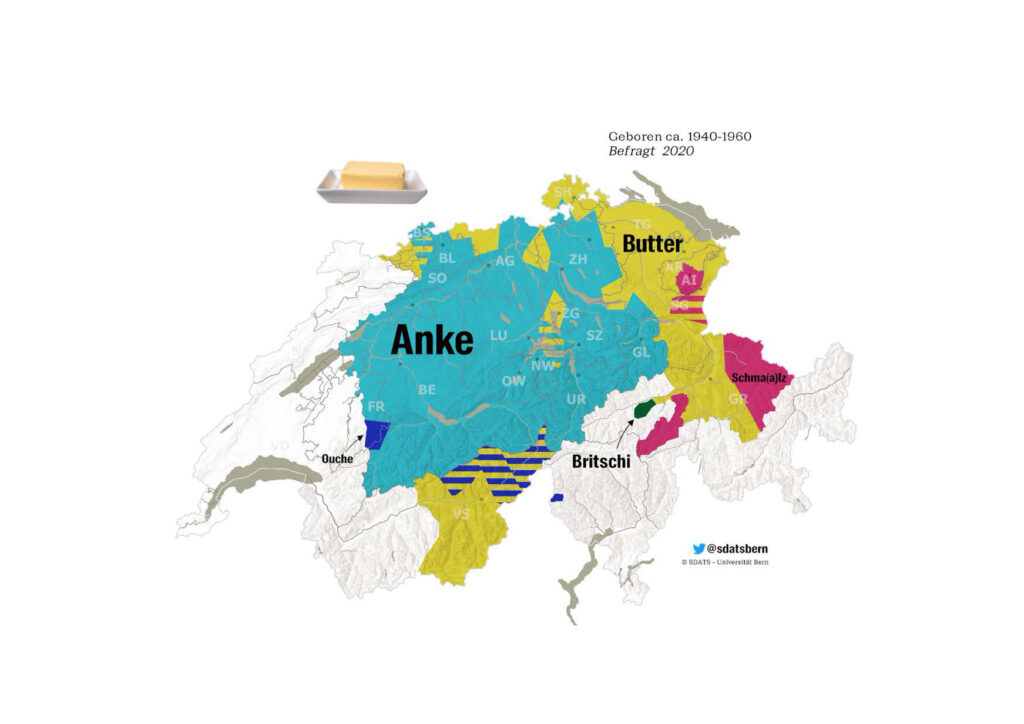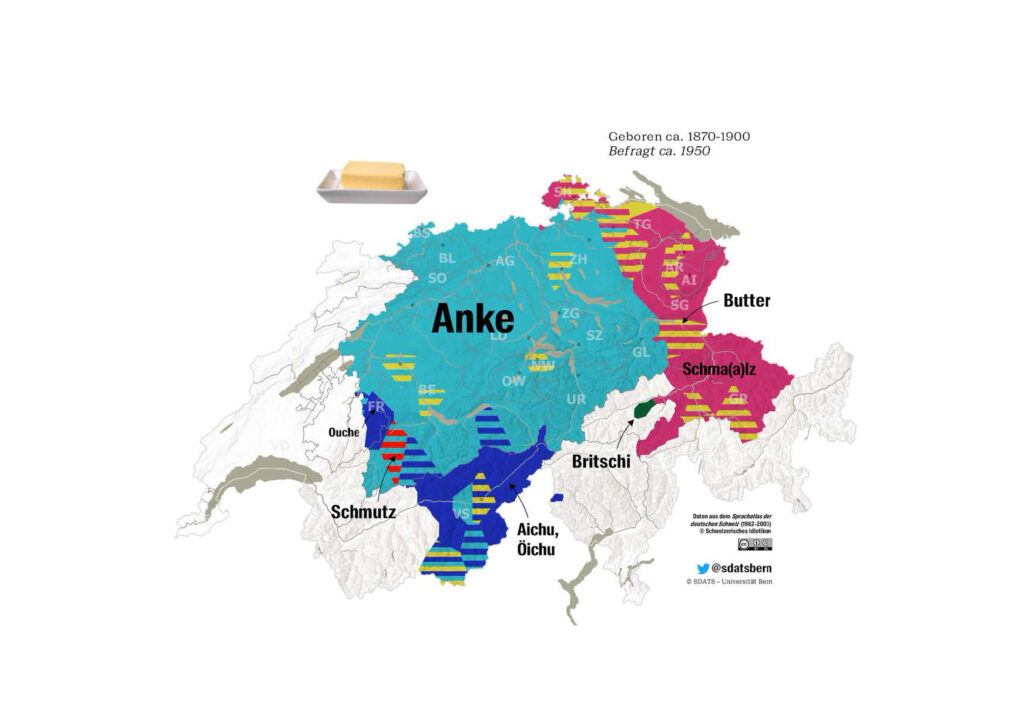The triumph of butter – how dialects change

Swiss German dialects are a crucial feature of Swiss German identity. But the “Züritüütsch” of today is not the same as it was in 1950. Find out which words and forms have spread over the past 70 years and which are slowly disappearing.

Swiss German dialects embody a fascinating diversity that is deeply rooted in Switzerland’s cultural identity. In German-speaking Switzerland, not only do the majority of conversations take place in dialect, but people are also proud of their local dialects and perceive them as a strong marker of identity. Thus, the dialects themselves often become a topic of conversation and can serve as social icebreakers. It is not uncommon to hear phrases such as ‘According to your dialect, you come from Zurich, don’t you?’ at aperitifs. By creating a connection between people from different regions, dialects foster a sense of familiarity and belonging, but can also be the basis for small rivalries or jokes.
At the same time, our dialects are also always in flux. Societal changes, mobility, and technological advances are just some of the factors that contribute to language change. The diffusion of novel terms and the disappearance of old ones are natural processes that reflect the adaptation of language to societal change.
At our booth, you can explore the social significance of dialects as well as how they change and learn more about our dialektatlas.ch project, which revolves around variation and change in Swiss German.



